[juicebox gallery_id=”40″]
Photos by Nate Abbott and Henrik Lampert. Click to view full screen and captions.
On February 18, 2014, David Wise became the first ever Olympic gold medalist in men’s ski halfpipe. While he was a—if not the—clear favorite in the field of 28, challenging weather conditions made the Olympic finals a volatile competition and prevented him from throwing down the run he wanted to. Ultimately, like a true professional, Wise was able to fight through the weather and overcome the added pressure of living up to the skiing community’s (and his own) expectations, and put down a smooth, technical run to secure a win that will forever stand out among a slew of other victories he’s accumulated in recent years.
While David has enjoyed a tram-load of success throughout his skiing career, he touts himself as a husband and father first, and a skier second. The 23-year-old family man lives a somewhat atypical life as compared to other up-and-coming, or young, top-level skiers, living in Reno with his wife, Alexandra, and his two-year-old daughter, Nayeli.
Watch: Wise shares thoughts on skiing vs. family.
The Road to Sochi:
Wise’s path leading up to the Olympics was relatively smooth thanks to his hard work and determination. In recent years, Wise has been a consistent performer, earning back-to-back-to-back X Games gold medals, in 2012, ’13 and ’14, and reaching 10 podiums prior to the Olympics, in this season alone.
For Wise, the Olympic qualifying period started off in grand fashion, as he earned a win at the Dew Tour in Breckenridge, CO, where he stood on the podium with fellow Americans Aaron Blunck and Lyman Currier by his side; a foreshadowing of things to come. Unfortunately, it was at this same competition that Torin Yater-Wallace, arguably Wise’s biggest competition, went down in a qualifying run, suffering two broken ribs and a collapsed lung, sidelining him for the duration of the Olympic qualifying process—a six-week stretch.
Watch: Wise’s gold medal performance at Dew Tour in Breckenridge.
With Yater-Wallace out of the picture, at least for the time being, the rest of the field moved on to Copper Mountain, CO, in the third week of December for a Grand Prix event—it would be the first of four Grand Prix events on North American soil that counted as Olympic qualifiers. It was there, at Copper, that the young Blunck would put on an impressive performance to earn himself a first place finish, while Wise had a disappointing performance that landed him in 34th.
Wise put his lackluster performance behind him, though, and came back strong to win the early January Grand Prix in Breckenridge, amidst challenging weather conditions. Ironically, the event had been relocated from Mammoth for lack of snow, only to end up suffering from the blizzard-like conditions of Summit County, CO. This win secured Wise’s spot on the U.S. Olympic freeskiing team and allowed him to focus on being in shape for Sochi. In an opposite twist of luck for Blunck, a fall and a separated shoulder would keep him off the podium.
The following week saw a double-header of Grand Prix events at Park City Mountain Resort, in Utah, after which the final team selections were made. It came down to the wire, and in the end it was the same trifecta of athletes who stood on the Dew Tour podium that would qualify for the U.S. team. Days after, Yater-Wallace would earn the coaches’ discretion spot for his consistency prior to being injured.
Heading to Sochi, the joke among the U.S. team was that Wise, “Dad,” would be heading to Sochi with his three youngsters, the so-called “teenage triple threat.” While it was speculated that any one of the U.S. team members could walk away with a gold medal at the Olympics, Wise was arguably the front runner, given his consistency and ability to perform in the clutch. As history would show, “Dad,” had a few things to teach them, yet.
And just two weeks before the Games would begin, Wise faced off at the annual X Games Aspen; he completed a three-peat, once again asserting his dominance in the sport of halfpipe skiing.
Watch: David Wise wins gold, 2014 X Games Aspen.
A Look Back:
We speak of Wise’s consistency, and the proof is in the pudding. Looking back at some of his recent, notable results, it’s clear: Wise is tough to beat.
2014, X Games Aspen, HP, 1st
2014, U.S. Grand Prix Park City #2, HP, 11th
2014, U.S. Grand Prix Park City, HP, 9th
2014, U.S. Grand Prix Breckenridge, HP, 1st
2013, U.S. Grand Prix Copper, HP, 24th
2013, The Dew Tour at Breckenridge, HP, 1st
2013, Winter X Games Europe, HP, 2nd
2013, FIS World Championships, HP, 1st
2013, Olympic Test Event in Sochi, HP, 5th
2013, U.S. Grand Prix Park City, HP, 1st
2013, X Games Aspen, HP, 1st
2013, U.S. Grand Prix Copper, HP, 3rd
2012, The Dew Tour at Breckenridge, HP, 5th
2012, Winter X Games Europe, HP, 3rd
2012, U.S. Grand Prix, HP, 1st
2012, Winter Dew Tour Snowbasin, HP, 1st
2012, X Games Aspen, HP, 1st
2012, Winter Dew Tour Killington, HP, 6th
In Sochi:
On the day of the men’s pipe final, things were rather dismal at Rosa Khutor. As Freeskier’s Henrik Lampert wrote, “It was wet. Very, very wet. From the get go, there were concerns about the condition of the halfpipe. And the pipe suffered, without question. Nevertheless, the show went on. Between the practice, qualifier and final, we saw full fledged rain, snow, heavy fog, and the occasional clear patch, too. Quite the mix.”
Wise finished second in the evening’s qualifying round, behind Canadian Justin Dorey. Come time for finals: he stepped it up.
Wise’s winning run—his first of two runs in the final—consisted of a right 9, left dub 12, right 7, switch 7 and a right dub 12 to close. As we mentioned above, this line-up is not quite up to par in regards to his standards for a top-notch run, but given the conditions that night, Wise was excited to have overcome adversity and secured a score of 92.00.
“I’m still trying to believe this whole, crazy thing,” Wise said, following the conclusion of the pipe final. “Conditions tonight weren’t optimal, but we had a good field of riders and I’m really stoked to see how everyone came out and threw down. It’s always rough when the conditions aren’t perfect, and you don’t get to do the run you were hoping to do. I’ve had a Sochi run on my mind for a long time that I really wanted to throw down tonight, but you’ll just have to wait until next year to see that one… But to fight through the conditions, I’m really proud of freeskiing tonight.”
Wise elaborated, “Conditions didn’t allow me to do the best run I wanted to do, but to do both double cork 12s given the speed issues, it was a huge accomplishment. This was my ‘C run.’ I was changing my tricks from moment to moment during practice as the conditions were always changing. Being adaptable was a big advantage.”
While we talk about Wise’s hard work and consistency, in the end, adaptability became a key player, as well—a skill acquired through years of competing: know the snow, know your limits, know your strengths, know your competitors, know the judges.
Click to listen: Wise addresses a media scrum in Sochi, post win.
Freeskier’s recap of the halfpipe finals—along with a photo gallery—is available here. Below, we catch up with Wise in the wake of his big win.
This week, Q&A with Wise:
What were your initial impressions of Sochi?
I think everything in general with the Olympics went a lot better than everybody expected. We showed up and everything was easy. We didn’t have any issues with baggage or visas or anything. We were staying in the coastal village for a couple of days because our training didn’t start until way later and we got to meet some other athletes, watch some of the events and of course, going to the opening ceremony was huge. It was just a totally unreal experience. My brain is still trying to comprehend everything that it saw in that short period of time. And then we headed up to the mountain from there.
Leading up to the event, did you get a chance to do any freeskiing around Rosa Khutor?
That was another amazing thing that we got to experience. We caught the tail end of the pow that dumped up there and I did a couple days of shredding in a row. That’s one of the craziest mountains I’ve skied as far as lift access to gnarly terrain goes, so that was a lot of fun. Couloirs everywhere, super steep lines, cliffs to jump, trees to ski… It’s got a little bit of everything.
What was your schedule like over there?
It was kind of a funny schedule for us because we spent so much time just chillin’. I was able to enjoy being part of Team USA, going to the opening ceremonies, etc, but at the same time there was plenty of time to focus in and do what I do. Opening ceremonies was [February] 7, our practice didn’t start until one week later, and our event wasn’t until February 18. I took advantage of it by hitting the gym to feel strong, and the whole team took advantage of it to go watch these sports that we’ve all grown up watching. We went and watched some downhill and I got to watch snowboard pipe finals which was a pretty amazing experience. Then it came down to our practice and for me I was able to just kinda disconnect from the Olympic experience and get back into my own world.
You were clearly a favorite going into the contest. How did you balance that pressure?
Pressure is whatever you make of it. There’s all kinds of pressure that you could put on your shoulders if you want. There’s pressure to be competing for your country, your hometown, your family, your sponsors, etc. It’s an outside force and it only affects you as much as you allow it to. I tend to just focus in on exactly what I’m doing, living moment by moment, thinking about the runs, thinking about the tricks that I’m doing and not thinking about what has already happened or what could happen. You have plenty of time to reflect on it when it’s all over. But while it’s happening you just have to stay in the moment.
Speaking of living in the moment… weather was a huge factor when it finally came time for the halfpipe event. At what point would you say you locked in your run?
I’m a huge planner and I had backup runs. I had backup, backup runs and the conditions were so challenging that day that I was changing my run from moment to moment. At the beginning of practice it was still raining so the pipe was still fast and I was able to put together my banger run that I had been wanting to do for a long time. Then by the end of practice the snow and sleet came in and I couldn’t even get enough speed to do a single double cork. The run that I came up with and did on the first run of finals was literally something that we talked about right after practice was over and I actually had some sort of alternate plans. If I had enough speed going into my last hit then I’d do a right dub 12 but if I didn’t then I’d do a flat 5 or a 10 or something like that. It’s hard to play that game with yourself when the pressure is on and you’re trying to land runs but that’s what we had to do that day.
How do you feel about your Olympic gold medal vs. an X Games gold medal?
It’s funny because I think as far as industry prestige, the X Games definitely takes the cake. It’s been a part of our sport for so long and sort of been responsible for making our sport what it is. But in the mainstream, the Olympics are as big as you can get. It’s just been amazing to see the amount of attention the Olympics get. I’ve won three X Games gold medals and I’ve gotten more attention for one Olympic medal than all three of the X Games ones combined. I was proud of our sport and the fact that we put on a pretty good show. I think the slopestyle contest was amazing; one of more exciting things I’ve ever watched. It was just cool to be a part of that whole thing. The whole debut of freeskiing in the Olympics.
There was a lot of debate leading up to the Olympics, and I’m sure there will continue to be for some time, about whether or not its inclusion will be good for the sport. Having been there and watched it all pan out, what are your thoughts on it now?
Contest skiing is always going to be contest of skiing and there’s always going to be the style aspect. Nobody is ever going to kill that and if they ever do, none of us will want to be skiing anymore. A lot of the [Olympic] riders going in, we all had the same goals of representing the sport well. I wasn’t planning on going in and throwing six different doubles even though I could have. It wouldn’t be a good representation of the sport to me. So people can hate all they want on the Olympics and claim that it’s going to turn the sport into a bunch of sellouts or whatever but there’s still going to always be guys in the backcountry, putting banger segments together and there’s always going to be the street skiers. That side of our sport is always going to exist. People can talk all they want about what it’s going to theoretically do to our sport but I haven’t seen any of the things the cynics have said, actually happen.
You seem to be laying a little lower than the slope guys since getting back home. Was that a choice on your part or just how it panned out?
It’s ironic timing because those guys [Christnesen, Kenworthy and Goepper] were done early and the whole world was excited about the Olympics. They had their medals around their necks and they could come back to the States and do all the shows. Then, by the time we were done the Olympics were winding down. I was able to go on Ellen and do some cool stuff like that. At that point a couple of Olympic gold medalists start to get outweighed by A-list celebrities. I think I’m still going to go out and do the New York tour and do some shows, but those guys definitely hit it perfect as far as maximizing publicity.
Have you had any notable things happen since returning from Russia?
My Reno homecoming was insane. I get off the plane and the mayor and the governor are there with about 1,000 other Reno-ites that are just super stoked, just screaming their heads off. We went up to the stage and the Governor declared that the next day (February 28) was going to be David Wise Day in Nevada. My hometown community has been so pumped about the whole thing. It’s just been wild.
What are your plans for the rest of the season?
I’m heading up skiing tomorrow and I’m excited to spend some real time shredding. Then soon, I’ll be heading over to Europe to do a couple film friendly events, doing Nine Knights and Kevin (Rolland)’s Shred It. I’m excited to get back on my skis after all this media mayhem.
Giving Thanks:
While the infamous Rule 40 prevented Wise—and all other Olympic athletes—from publicly thanking their sponsors throughout the duration of the Games, we’ll take a moment to give due credit to those who have supported Wise on his road to the top of the men’s Olympic halfpipe podium.
Wise is sponsored (and fueled) by Monster Energy, 4FRNT Skis, Smith Optics, O’Neill, Kicker—the consumer electronics manufacturer well known for its home/portable, marine and mobile audio products, and perhaps best known for “Livin’ Loud” with its subwoofers—Northstar California, Visa, P&G, Formax Results, U.S. Freeskiing and The Antos Agency.
Also read: The Wise Man vs. The Wild Man: Comparing, contrasting David Wise and Torin Yater-Wallace
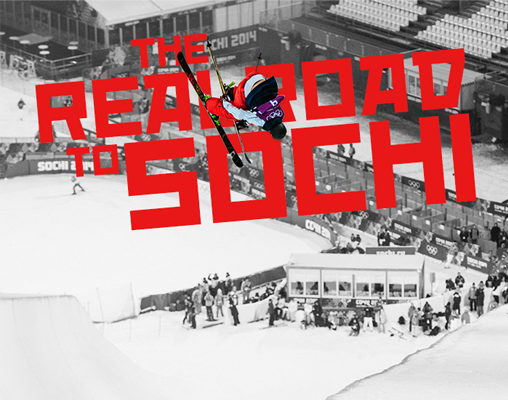
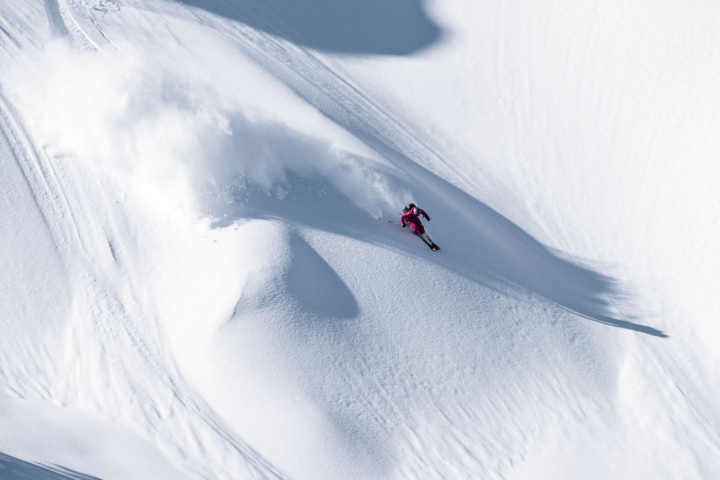
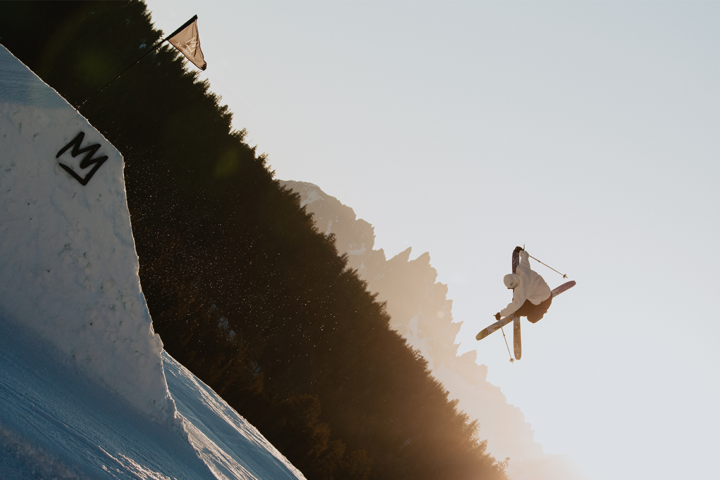
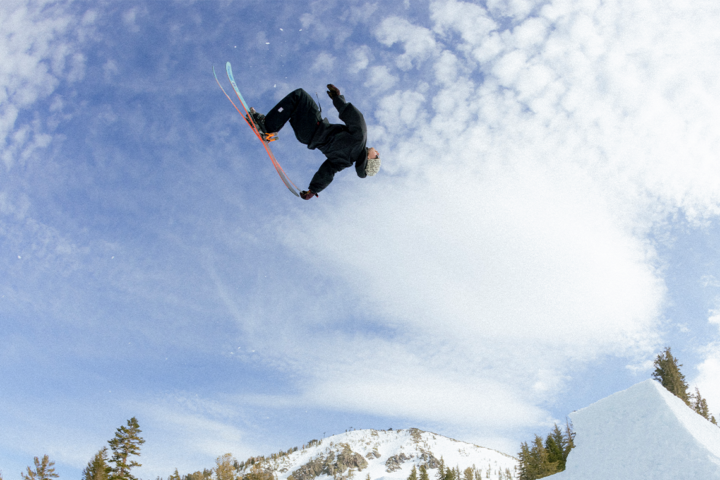
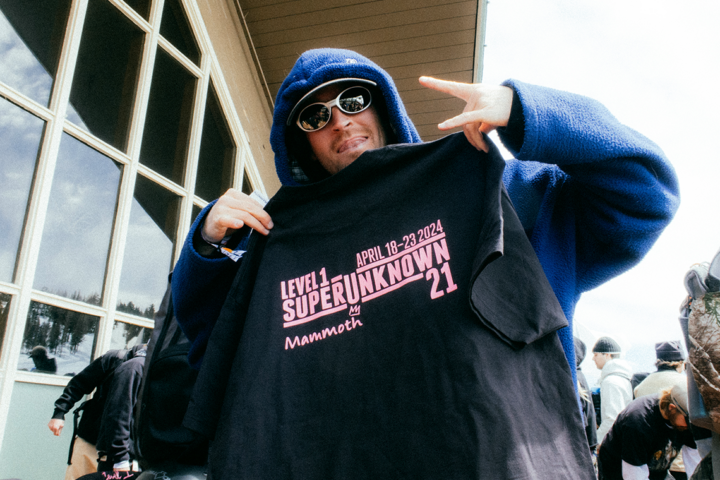

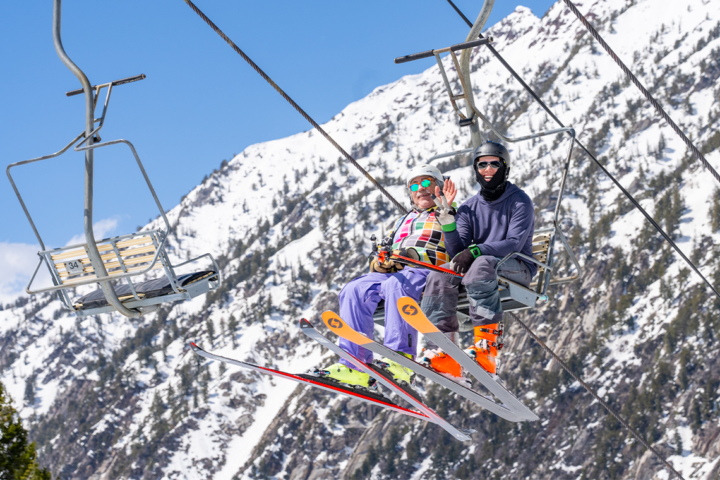
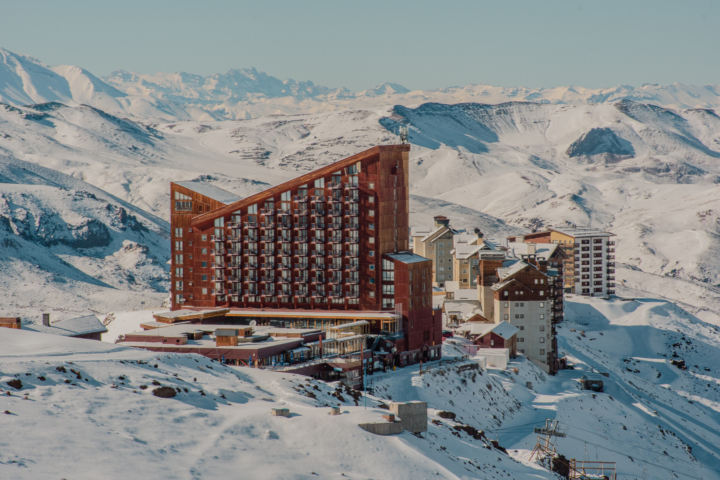
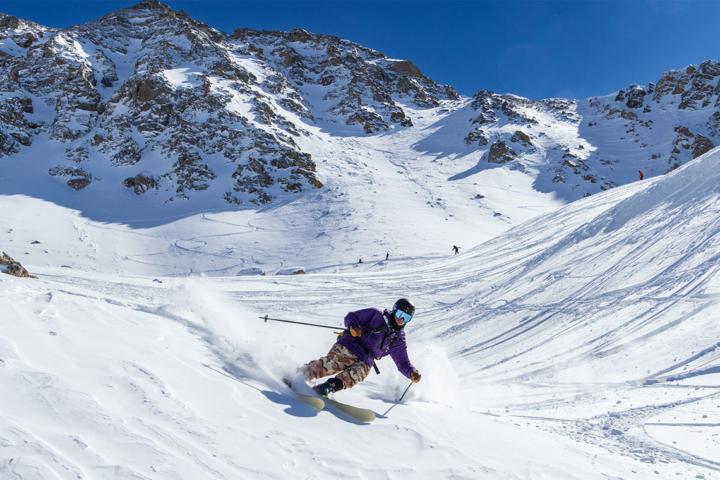
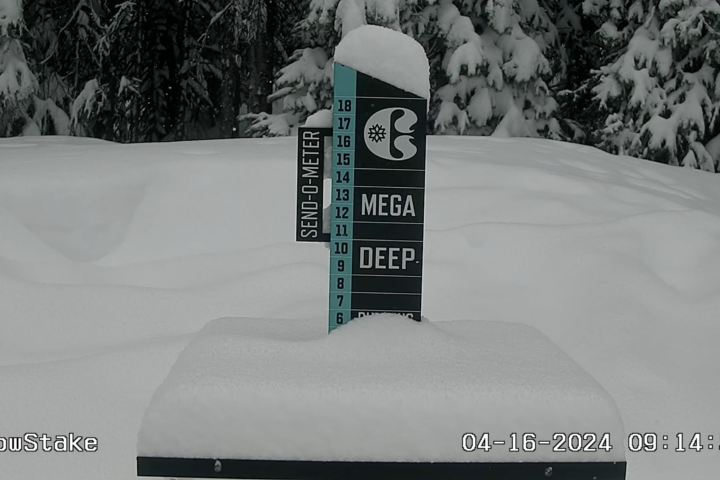
Comments are closed.